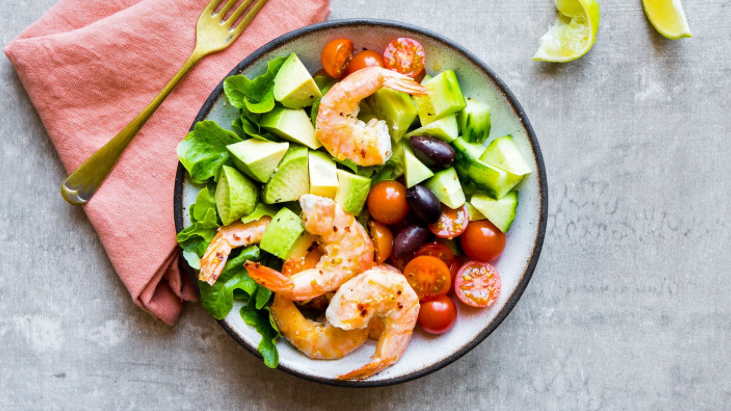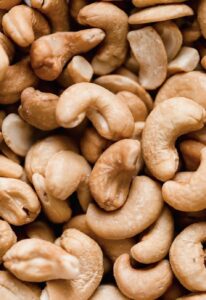Low carb diets have garnered attention for their potential health benefits, including weight loss and improved blood sugar control. These diets revolve around reducing carbohydrate intake, which can lead to metabolic changes that promote fat burning and stabilize blood sugar levels. Understanding the basics of low carb eating is crucial for individuals considering this dietary approach to optimize their health and well-being.

Types of Low Carb Diets:
Low carb diets come in various forms, each with its own approach to carbohydrate restriction. These include:
- Ketogenic (Keto) Diet: This ultra-low carb diet typically limits daily carbohydrate intake to less than 5-10% of total calories, equating to around 20–50 grams per day. The goal is to induce a state of ketosis, where the body primarily burns fat for fuel.
- Atkins Diet: The Atkins diet progresses through phases, with the initial phase severely restricting carb intake to about 20 grams per day. Carbohydrate consumption gradually increases over subsequent phases but generally remains below 100 grams per day.
- South Beach Diet: This diet focuses on lean proteins, healthy fats, and low glycemic index carbohydrates. During the initial phase, grains and fruits are restricted to stabilize blood sugar levels.
- Paleo Diet: Inspired by the eating patterns of our hunter-gatherer ancestors, the Paleo diet emphasizes whole foods such as meats, fish, fruits, vegetables, nuts, and seeds while excluding processed foods, grains, and legumes.
- Dukan Diet: This multi-phase diet emphasizes protein intake while gradually reintroducing carbs. It aims to promote weight loss through strict dietary guidelines.
Foods to Eat on a Low Carb Diet:
Low carb diets prioritize foods that are low in carbohydrates while being rich in protein, healthy fats, and fiber. Recommended foods include:
- Meat, Fish, and Poultry: Beef, chicken, turkey, pork, salmon, trout, and other lean cuts of meat.
- Non-Starchy Vegetables: Leafy greens, broccoli, cauliflower, bell peppers, zucchini, and asparagus.
- Lower Carb Fruits: Berries (such as blueberries, strawberries, raspberries), citrus fruits (like oranges), and avocados.
- Nuts and Seeds: Almonds, walnuts, chia seeds, flaxseeds, and pumpkin seeds.
- High-Fat Dairy: Cheese, butter, heavy cream, and Greek yogurt.
- Healthy Fats and Oils: Olive oil, avocado oil, coconut oil, and fatty fish rich in omega-3 fatty acids.
Foods to Include in Moderation:
Some foods may fit into a low carb diet in moderation, depending on individual carb tolerance. These include:
- Starchy Vegetables: Potatoes, sweet potatoes, yams, and carrots.
- Higher Carb Fruits: Bananas, mangos, pineapples, and grapes.
- Whole Grains: Brown rice, oats, quinoa, and barley.
- Legumes: Lentils, black beans, chickpeas, and peas.
- Higher Carb Dairy: Milk and full-fat yogurt.
Foods to Avoid on a Low Carb Diet:
Individuals following a low carb diet may need to limit or avoid certain high-carb foods, including:
- Sweet Snacks: Candy, ice cream, pastries, and other sugary treats.
- Refined Grains: White bread, white rice, pasta, and baked goods made with refined flour.
- Diet and Low-Fat Products: Many low-fat products are high in added sugars, which should be avoided.
- Highly Processed Foods: Convenience meals, fast food, chips, cookies, and sugary cereals.
- Sugar-Sweetened Beverages: Soda, fruit juices, energy drinks, and sweetened teas.

Healthy Low Carb Snacks:
When hunger strikes between meals, consider these nutritious and satisfying low carb snack options:
- Piece of Fruit: Berries, apples, or oranges.
- Greek Yogurt: Opt for plain, unsweetened varieties.
- Hard-Boiled Eggs: A convenient source of protein.
- Baby Carrots: Crunchy and low in carbs.
- Nuts: Almonds, walnuts, or pistachios.
- Cheese and Meat: Sliced cheese paired with turkey or ham.
Eating at Restaurants on a Low Carb Diet:
Dining out while adhering to a low carb diet requires careful consideration of menu options. Here are some tips for making low carb choices when eating out:
- Choose Protein-Based Dishes: Opt for grilled meats or fish as your main course.
- Skip Sugary Beverages: Stick to water, unsweetened tea, or coffee.
- Prioritize Vegetables: Substitute starchy sides like potatoes or rice with extra vegetables or a side salad.
- Check Menus in Advance: Review restaurant menus online to identify low carb options.
- Control Portions: Request sauces, dressings, or condiments on the side to manage carb intake.
- Consider Taking Leftovers: If portions are large, ask for a to-go container to enjoy the rest of your meal later.
Frequently Asked Questions:
Addressing common queries about low carb eating can provide valuable guidance for individuals navigating this dietary approach:
- No-Carb Days: While entirely avoiding carbs is not recommended for most people, focusing on protein, vegetables, and fruits on low carb days can support health goals.
- Staying Under 20 Carbs a Day: Achieving a daily carb limit of 20 grams requires careful meal planning with an emphasis on low carb, nutrient-dense foods.
- Low Carb Diet Plans for Special Populations: Vegetarians and individuals with diabetes can follow modified low carb diets tailored to their dietary preferences and health needs.
Understanding the nuances of low carb eating, including food choices, meal planning strategies, and dining out tips, empowers individuals to embrace this dietary approach effectively and reap its potential health benefits.
EUROPEAN PERSPECTIVE
Extract of the BBC Article: Is a low-carb diet right for you?
A low-carb diet reduces the intake of carbohydrate-rich foods like bread, pasta, and sugary drinks, encouraging the body to burn fat for energy instead. This diet is often used for weight loss and managing Type 2 diabetes (T2D), as it can help lower blood sugar levels, blood pressure, and cholesterol. However, it’s not suitable for everyone, especially those with Type 1 diabetes, pregnant women, and children. Critics argue that low-carb diets may lead to nutrient deficiencies, digestive issues, and disordered eating patterns. The NHS recommends balanced meals that include wholegrain carbohydrates for essential nutrients.
sources: https://www.healthline.com/nutrition/low-carb-diet-meal-plan-and-menu#fa-qs & https://www.bbc.co.uk/food/articles/low_carb_diet



